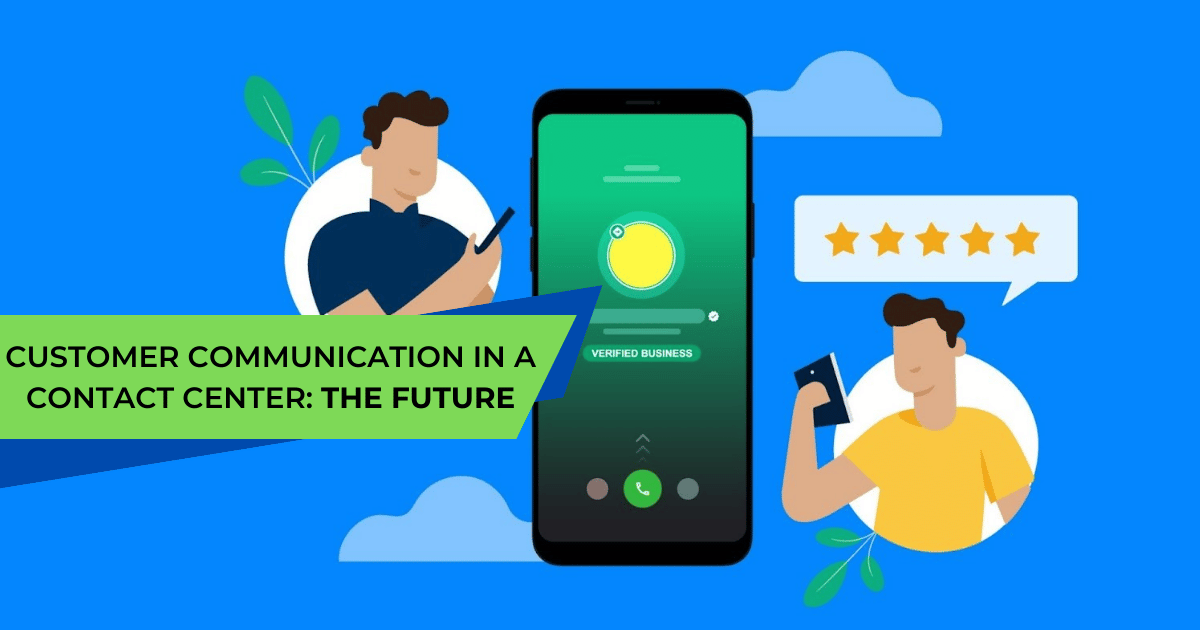Customer Communication in a Contact Center: The future
The past couple of years has dramatically changed how customers engage with a brand. They want to communicate through the channels they prefer, at the speed they expect, and with the empathy they crave.
We are in an age where digital conversations are a go-to, and real human-to-human conversations are secondary. Today, your “fast” might not be “fast enough,” and your competitors are not just those in your industry. These accelerated changes are leaving many customer experience teams burnt out and exhausted because the systems and processes are not evolved enough to support the growing customer demands.
In this article, let’s throw some light on the future of customer communication and the customer experience in contact centers.
The future of contact centers can be summed up in the following trends.
1. Cloud-based and remote contact centers will gain popularity.
With remote work being the norm, building remote contact centers is the future.
However, building a remote call center can be tricky. It takes planning, preparation, and, most importantly, the right cloud-based technology to route calls to the right person, software to manage calls remotely, tools to track agents, and the right solutions to coach agents from anywhere. One such cloud-based solution gaining traction is intelligent call routing. It differs from the traditional call routing strategy, which is rule-based and static. Moreover, with intelligent call routing, calls are dynamically routed to the right agent based on parameters like CSAT score, idle time, etc. As a result, it enhances customer communication and the overall call experience.
2. Establishing brand credibility and positioning
Brand credibility and trustworthiness are other factors that set your brand apart from numerous others.
Customer communication can be made more impactful if the brands are transparent and honest in their approach. This is why working on your brand credibility and reputation is imperative for customers to take you seriously. With services like Verified Business Caller ID by Truecaller, you can get an added layer of authenticity that can enhance the overall brand experience of your customers.
Furthermore, advanced features like Call reason and Call Me Back can help you reach more people and improve customer interactions. When customers know why you’re calling them, it becomes easier for them to recall your brand and eliminate the confusion of identifying the caller.
3. Virtual coaching and Call Transcriptions will be used to boost agent
Training has always been critical for the development of contact center agents. By identifying the areas of improvement for your agents, you can help improve their performance. You can also monitor their calls using the recordings and ensure they progress.
However, the traditional approach of one-on-one agent coaching is hard to scale if you have a larger workforce. Moreover, giving feedback manually to agents has always been a task.
The future of contact centers will turn towards virtual training and coaching. With remote working being the trend re-shaping the future of contact centers, virtual coaching makes all the more sense to ensure the development of your agents from anywhere and any device.
4. Analytics will drive the future of contact centers.
We all know how undeniably robust data is, and contact centers receive customer call data in massive volumes daily. Such vast data can be analyzed and used to serve customers better.
For example, predictive analysis will be very important in the future of contact center communication as it will reveal customer behavior and patterns.
Advanced analytics uses multiple tools to get valuable customer insights. These days brands deploy multiple channels to address customer needs; for example, social media, voice calls, emails, and more. Here, analytics can help you make strategies to best utilize your agents and improve the overall customer experience for your brand.
5. Omnichannel experience will critically impact overall customer
Today, with so many options available for the customer to contact your business, consistent messaging is the key to retaining them. If you deliver a consistent customer experience across these channels, half of your job is done, be it calls, messages, emails, or social media.
As the experience of customers becomes more and more omnichannel, the role of contact centers becomes all the more enjoyable. They are the first point of contact and are responsible for creating highly engaging and intent-based customer journeys across all channels–digital and voice calls. They assist your customers across purchases, returns, and any other issue they might face with the product or service from your brand.
If customer communication is weak at any of these channels or touchpoints, the whole customer experience can go down the drain. For example, the customer experience on the calls can be risky and significantly impacted by factors like your brand’s credibility.
Even if you have a great ranking on Google reviews or organic searches, even a decent CSAT score–but not a branded caller ID with a name, logo, or a verified badge, chances are that the caller experience of this brand is at stake since its calls can easily get lost in the clutter. With services like Truecaller for businesses, companies can leverage an added layer of customer trust and credibility, ultimately multiplying their customers’ loyalty.
To sum up:
Gone are the days when providing customer service through inbound and outbound calls.
Instead, the future of call centers will be guided by analytics, a credible brand identity, and everything that makes it convenient for the customer to engage with
your brand. A customer-centric approach is the future of contact centers and all businesses in general.
Therefore, they need reliable services and tools to help elevate their customer experience and distinguish you from the rest.





I’ve read many views on the same topic before but the views highlighted by you are rare and fresh. Thanks for sharing this new piece of information.